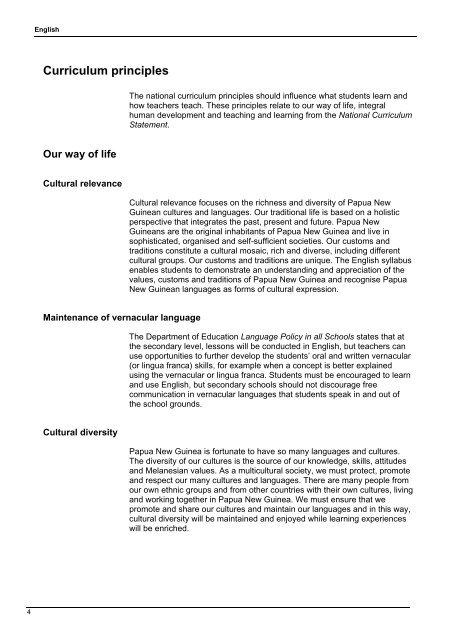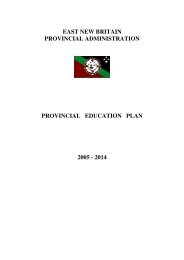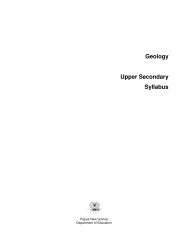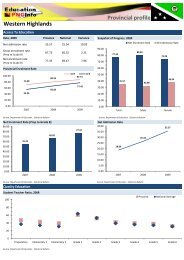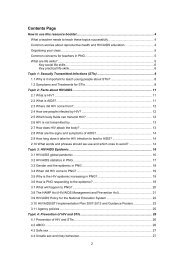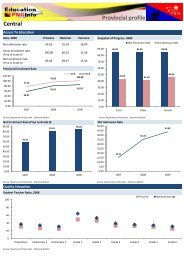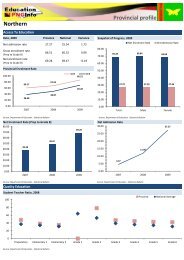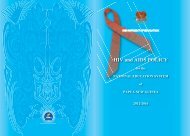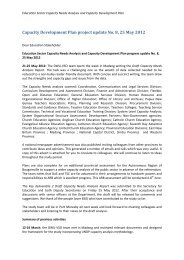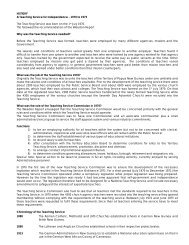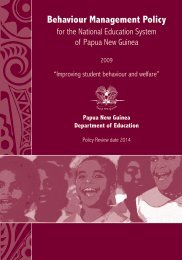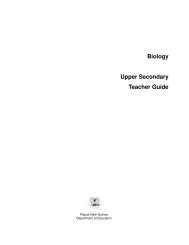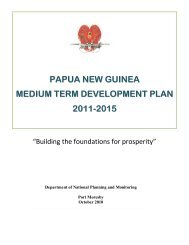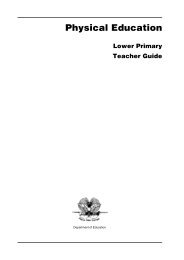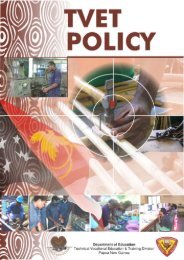English Lower Secondary Syllabus - Department of Education
English Lower Secondary Syllabus - Department of Education
English Lower Secondary Syllabus - Department of Education
Create successful ePaper yourself
Turn your PDF publications into a flip-book with our unique Google optimized e-Paper software.
<strong>English</strong>Curriculum principlesThe national curriculum principles should influence what students learn andhow teachers teach. These principles relate to our way <strong>of</strong> life, integralhuman development and teaching and learning from the National CurriculumStatement.Our way <strong>of</strong> lifeCultural relevanceCultural relevance focuses on the richness and diversity <strong>of</strong> Papua NewGuinean cultures and languages. Our traditional life is based on a holisticperspective that integrates the past, present and future. Papua NewGuineans are the original inhabitants <strong>of</strong> Papua New Guinea and live insophisticated, organised and self-sufficient societies. Our customs andtraditions constitute a cultural mosaic, rich and diverse, including differentcultural groups. Our customs and traditions are unique. The <strong>English</strong> syllabusenables students to demonstrate an understanding and appreciation <strong>of</strong> thevalues, customs and traditions <strong>of</strong> Papua New Guinea and recognise PapuaNew Guinean languages as forms <strong>of</strong> cultural expression.Maintenance <strong>of</strong> vernacular languageThe <strong>Department</strong> <strong>of</strong> <strong>Education</strong> Language Policy in all Schools states that atthe secondary level, lessons will be conducted in <strong>English</strong>, but teachers canuse opportunities to further develop the students’ oral and written vernacular(or lingua franca) skills, for example when a concept is better explainedusing the vernacular or lingua franca. Students must be encouraged to learnand use <strong>English</strong>, but secondary schools should not discourage freecommunication in vernacular languages that students speak in and out <strong>of</strong>the school grounds.Cultural diversityPapua New Guinea is fortunate to have so many languages and cultures.The diversity <strong>of</strong> our cultures is the source <strong>of</strong> our knowledge, skills, attitudesand Melanesian values. As a multicultural society, we must protect, promoteand respect our many cultures and languages. There are many people fromour own ethnic groups and from other countries with their own cultures, livingand working together in Papua New Guinea. We must ensure that wepromote and share our cultures and maintain our languages and in this way,cultural diversity will be maintained and enjoyed while learning experienceswill be enriched.4


